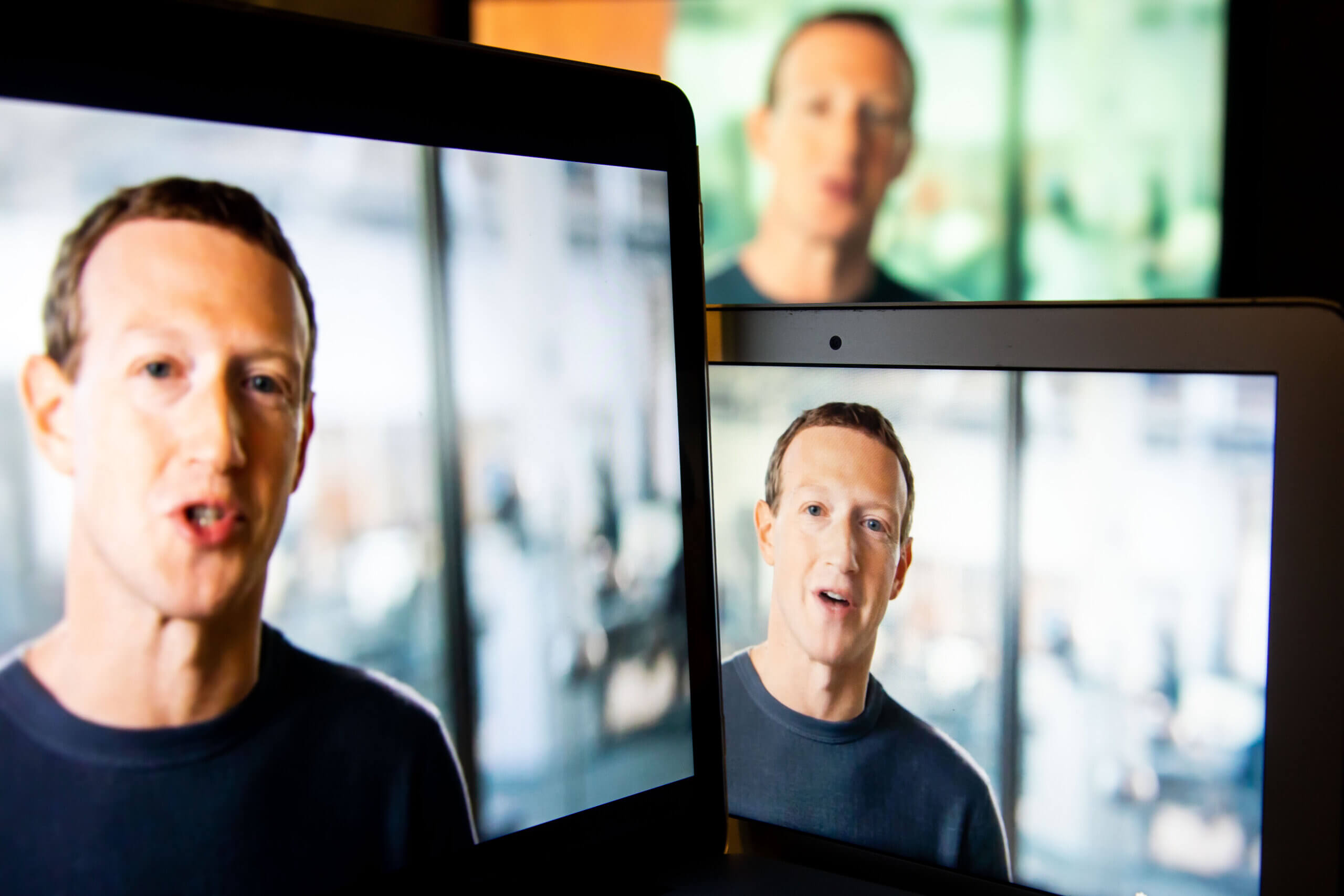Could Elon Musk’s replacement CEO make Twitter good for the Jews?
It’s been pretty bad for the Jews under Musk

Elon Musk, CEO of Twitter. Courtesy of Getty Images
Twitter users have spoken: They want Elon Musk to step down as the CEO of Twitter.
Perhaps it’s the racism and antisemitism that immediately spiked under Musk’s lax moderation policy. Maybe it’s the trolls who can now get blue check verification for just a few dollars. Or it could just be that the site keeps breaking.
Users voted on the topic in a Twitter poll posted by Musk himself on Sunday, in totally normal and responsible CEO behavior. When posting the poll, Musk promised to adhere to the results.
Should I step down as head of Twitter? I will abide by the results of this poll.
— Elon Musk (@elonmusk) December 18, 2022
Of course, once the results showed that 57.5% of Twitter users participating in the poll wanted him to step down, Musk indulged in some theories about bots throwing the results. But on Tuesday he announced in a tweet that he would resign from the role as soon as he can find “someone foolish enough to take the job,” but would continue to run the software and server teams.
Since Musk took over less than two months ago, the company has zigged and zagged through abrupt changes to its policy and business model, all while Musk has laid off nearly half the company’s staff.
The result has been, to be blunt, bad for the Jews. Researchers found that the number of antisemitic posts on Twitter increased by 61% in the two weeks after Musk took over. Musk has returned Twitter privileges to various accounts that Twitter had previously banned for hate speech or disinformation, including Rep. Marjorie Taylor Greene and former President Donald Trump. He has allowed racial epithets on the platform, which numerous users took immediate advantage of by gratuitously tweeting slurs. And while he has banned links to many other social media sites, including Facebook and Instagram, from Twitter, links to far right social media sites including Gab are still allowed.
It’s hard to imagine a new Twitter CEO somehow making the platform even worse. But some of the people likely to come up in discussion for the role don’t exactly have stellar records on antisemitism, either. We’ve taken a look at the resumes of a few of the candidates we expect to see in the mix — and asked whether any of them could possibly be good for the Jews.
Jared Kushner

Jared Kushner and Musk were spotted together in a VIP box at the World Cup finale, so we know they’re friendly. And if Kushner is interested in Twitter, he seems like a likely candidate for new CEO, not least because Musk borrowed a significant amount of money to buy Twitter in his showy takeover and payments on those loans are coming due. Kushner, meanwhile, now runs a private equity firm, Affinity Fund, with an estimated $2 billion in Saudi investment money to play with. And Kushner’s fund has invested in tech before.
We know that Saudi leaders, who presumably have a large hand in Kushner’s venture, given that they hold a stake of at least 28% in the company, are interested in Twitter: Saudi Prince Alaweed bin Talal bin Abdulaziz bought the second-largest share in the company after Musk’s takeover.
One crucial fly in the ointment: Kushner’s firm is backed by Saudi Arabia’s crown prince, who is at odds with Musk’s shareholding prince. A Kushner takeover could be a chess move in Saudi power plays — or be forestalled by them.
Would it be good for the Jews?
Kushner is Jewish, so one would hope he’d take pains to eradicate white supremacy, antisemitism, violence and hate speech on Twitter. On the other hand, he worked closely with Trump, who fomented white supremacy, antisemitism, violence and hate speech on Twitter (as well as, of course, on many other platforms) before being removed from the platform for inciting real-world violence. And Kushner’s focus appears to be on Israel, not on American Jews. Can’t get too optimistic.
Mark Zuckerberg

In the last year, Facebook parent company Meta’s stock plummeted, its usership finally stopped growing and the company announced massive layoffs (right around the same time that Musk fired the majority of Twitter’s staff, as it happens).
Founder Mark Zuckerberg probably has his hands full managing all of that, but maybe he’s looking to absorb his competitor into the Meta portfolio.
While Facebook has far more active users than Twitter — Facebook’s active users are on the order of billions, while Twitter’s are in the millions — Twitter’s brand is more hip and relevant, even with the added baggage of Musk’s leadership. Facebook has become the domain of your grandparents. Instagram, owned by Zuckerberg’s company Meta, is better than Facebook, but largely overrun with identical influencers and ads.
Twitter, meanwhile, still churns out memes and powers trends. It seems unlikely that Musk would be open to a Zuckerberg takeover — Facebook and Instagram are currently among the sites users are banned from linking to on Twitter — and it also would probably be illegal for Meta to own yet another competitor. (The Federal Trade Commission is already suing Meta for breaking antitrust laws.) Still, Zuckerberg has bought Instagram and WhatsApp already, so it seems plausible that he’d manage to buy Twitter, too.
Would it be good for the Jews?
Zuckerberg is a notable square, so he’d be likely to run the company’s relevance into the ground immediately, perhaps by turning Twitter into a metaverse-style platform where we all float around with no legs. That might be a net positive — antisemitism can’t flourish on a platform no one uses. On the other hand, Jewish Twitter has grown into a lively community, and it would be a real loss if it crumbled because of a poorly managed platform.
Zuckerberg is Jewish and gives to Jewish groups, but Facebook struggles to moderate antisemitism and white supremacy just as much as any other social media platform — which is to say, it struggles a lot. I think this one would be kind of a wash for the Jews. Definitely bad for anyone who doesn’t like monopolies, though.
Andrew Torba

Torba is the founder of free speech social media site Gab, which is largely infamous for hosting the Tree of Life shooter’s antisemitic screeds before he shot 11 Jews in a synagogue in 2018. It’s also known for its plethora of hate speech and for welcoming figures such as Marjorie Taylor Greene after Twitter banned them.
Torba might be concerned that Gab will lose its highest profile users now that they can return to Twitter, and want to combine forces. And while Torba is pretty radioactive in mainstream media and politics — a terrible PR choice — Musk loves a good troll.
Plus, Gab is not currently one of the sites that Twitter users are banned from sharing links to, so perhaps he is on friendlier terms with Musk than, say, Zuckerberg is. After all, Torba and Musk share their stated values of radical free speech, which includes allowing open hate speech and conspiracy theories.
Would it be good for the Jews?
This one is clearcut: no. Torba would be very, very bad for the Jews. First of all, Gab is absolutely overflowing with antisemitism, so we already know how Torba runs a social media platform.
Plus, Torba is a proud Christian nationalist who currently leverages Gab to fund and rabble-rouse for his hoped-for Christian future. Torba sends out regular hysterical emails about the corruption of both Christianity and America by non-Christian Americans. Jews do not have a place in Torba’s world, or on his Twitter.
Jack Dorsey

Dorsey, Twitter’s founder and former CEO, has stepped away from the head role at Twitter before, only to return, and then step down yet again. Third time’s the charm?
Would it be good for the Jews?
It’s not that Twitter under Dorsey was devoid of conspiracy theories or antisemitism. But after Jan. 6, Twitter changed tactics and got far more vigilant. The platform began banning users who engaged in hate speech or spread misinformation including, of course, Trump.
Dorsey’s return, and a return to the most recent status quo, seems like it would be an improvement. It’s a low bar, but baby steps.

















